Entertainment
/ArcaMax
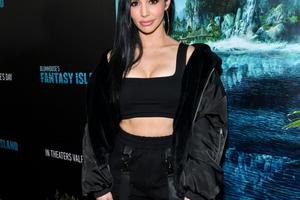
Vanderpump Rules Scheana Shay explains why she has been 'depressed' for the past six months
Scheana Shay has been "feeling depressed" for the past six months.
The 40-year-old reality star - who became known an original cast member on the Bravo series 'Vanderpump Rules' - took part in the Fox singing competition 'The Masked Singer' earlier this year, but knew when she signed up for it that it wasn't a great idea and it left her feeling...Read more
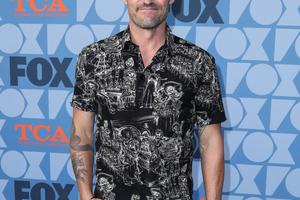
Brian Austin Green 'doesn't remember' hooking up with Tori Spelling
Brian Austin Green "doesn't remember" hooking up with Tori Spelling.
The 51-year-old actor starred alongside Tori, also 51, on the hit 1990s series 'Beverly Hills, 90210' and she recently reminded him that they had a sexual experience together as teenagers, but he had no recollection of it.
Speaking during their upcoming reunion on 'The $100,...Read more
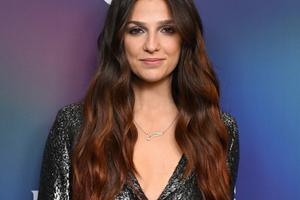
Marisa Abela found it 'difficult' to deal with the sudden fame that came with playing Amy Winehouse
Marisa Abela had to come off social media when she played Amy Winehouse.
The 28-year-old actress starred as tragic singer Amy- who died in 2011 at the age of 27 - in the biopic 'Back To Black' and felt as if she was "jumping in at the deep end" as she was presented to the world as an on-screen version of the legendary singer.
She told The ...Read more
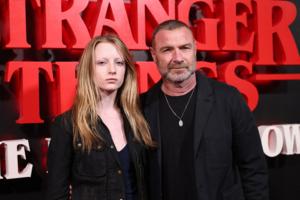
Liev Schreiber recalls trans daughter Kai's low-key coming out: Wasn't 'that big of a deal'
LOS ANGELES — Liev Schreiber has plenty of pride for his daughter Kai, who he said came out as transgender with a simple request.
"The most profound moment was her asking us to change her pronouns," the "Ray Donovan" star told Variety in an interview published Thursday.
The Emmy-nominated actor, 57, spoke about his support for his daughter ...Read more
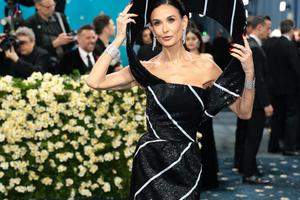
Demi Moore to lead cast of new alien-themed romance after Oscar snub
Demi Moore has joined the cast of 'Strange Arrivals'.
The 62-year-old actress will join Colman Domingo in the alien-themed romance film, which is based on the podcast by Toby Ball and will be directed by Roger Ross Williams, with Jane Anderson writing the script.
In a statement on the project, Williams told Deadline: "As a director, to be able...Read more
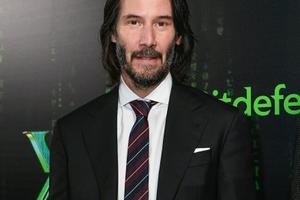
John Wick star Keanu Reeves says he is 'excited for people to see' Ana de Armas in Ballerina
Keanu Reeves is "excited for people to see" 'Ballerina'.
The 60-year-old actor makes a small appearance in the upcoming action film - which is a spin-off from his 'John Wick' franchise - and found it "really cool" to work on the project for a short amount of time as he praised leading star Ana de Armas in her role as former dancer-turned-...Read more
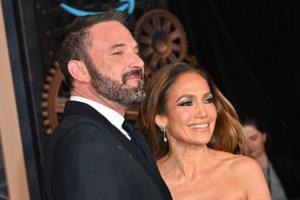
Ben Affleck, J.Lo slash asking price of Beverly Hills home to less than they paid for it
After nearly a year of trying to unload their marital mansion in Beverly Hills, Ben Affleck and Jennifer Lopez have finally slashed the asking price, despite J.Lo reportedly not wanting to do so.
But sprawling estates still cost a thing, as TMZ reports the newly divorced A-listers reduced the price from $68 million to just under $60 million —...Read more
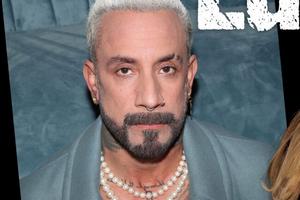
AJ McLean reveals moment he knew he had to go sober as he vows his kids will 'never' see him drunk
AJ McLean has vowed that his children will "never" see him drunk.
The 47-year-old pop star - who Elliott, 12, and eight-year-old Lyric with ex-wife Rochelle Kardis - struggled with addiction at the height of his fame but almost four years after deciding to go sober, he has insisted that while his kids have never seen him under the influence, ...Read more
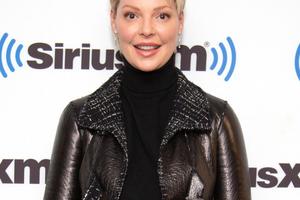
Katherine Heigl opens up about suffering from 'anxiety' as a parent of two teenagers
Katherine Heigl feels a lot of "anxiety" as a parent of two teenagers.
The 46-year-old actress has daughters Naleigh, 15, and Adalaide, 13, as well as eight-year-old Joshua with her husband Josh Kelley and doesn't feel as "in control" as she once did with her eldest two.
She told PEOPLE: "It really increases your anxiety and your fear as a ...Read more
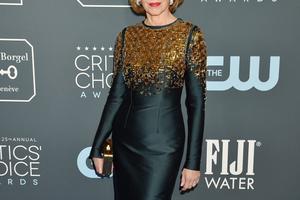
Mamma Mia! star Christine Baranski isn't sure what her real age is
Christine Baranski isn't sure what her real age is.
The 'Mamma Mia!' star recently celebrated her birthday but joked that she is still just going to refer to herself as "being in [her] early seventies" rather than naming a specific number.
Speaking on 'CBS Mornings', she said: "I feel great, I just had a birthday on May 2nd, but I'm not sure ...Read more
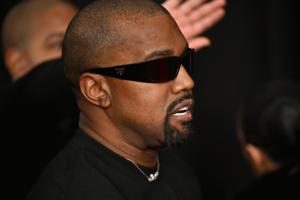
Ye claims streamers banned his new single 'Heil Hitler'
LOS ANGELES — Kanye West's new single "Heil Hitler" is not getting the warm reception on streaming services that he'd imagined.
West, now know as Ye, has teased the incendiary single for days on livestreams, but to little success on music streaming platforms. The rapper released it on Soundcloud on Thursday, only for it to vanish a day later....Read more

Fox News pundit Camryn Kinsey passed out on air: 'Sorry for the scare last night!'
LOS ANGELES — Political pundit Camryn Kinsey fainted on camera Thursday night while making an in-studio appearance on “Fox News @ Night.” It made for a dramatic television moment — one that she commented on Friday morning on social media.
Kinsey was on the show to comment on former President Joe Biden’s media appearances this week on ...Read more

My work ethic is in my blood, says Nicole Scherzinger
Nicole Scherzinger's work ethic is "in [her] blood".
The 46-year-old star - who has received a Tony Award nomination for her performance in 'Sunset Boulevard' - feels "very proud" of her family heritage and she's credited her background for forging her resilient attitude.
Nicole - who was born in Honolulu, Hawaii - told 'Extra': "I got a lot ...Read more

Kendra Wilkinson gives Hank Baskett 'the respect he deserves'
Kendra Wilkinson is giving Hank Baskett the "respect he deserves".
The 39-year-old TV star - who has Hank, 15, and Alijah, ten, with her ex-husband - has taken to social media to rubbish the suggestion that she's "still holding on to [her] ex".
Kendra - who was married to Hank between 2009 and 2018 - wrote on Instagram: "I just got a comment ...Read more

Maren Morris: I suffer from mom-brain every day
Maren Morris suffers from "mom brain".
The 35-year-old singer - who has a five-year-old son called Hayes with ex-husband Ryan Hurd - has revealed that she's still battling so-called mom brain, which is a phrase used to describe postpartum forgetfulness.
Maren told People: "I have pretty good recall for, like, movies and years they came out, ...Read more

Charlize Theron jokes her kids have 'zero respect' for her career
Charlize Theron's children are unimpressed by her career.
The Oscar-winning star is one of the best-known actresses in Hollywood - but Charlize's kids are underwhelmed by her achievements.
During an appearance on 'Jimmy Kimmel Live!', Charlize quipped: "My children have zero respect for me.
"It's just unbelievable, I feel like I'm pretty ...Read more
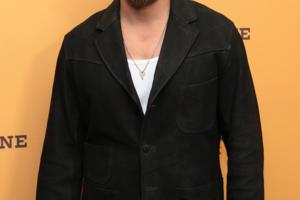
Get ready, 'Yellowstone' fans: Kayce Dutton will return to TV screens in new show
FORT WORTH, Texas — “Yellowstone” star Luke Grimes is returning as Kayce Dutton in a new television show.
CBS announced this week that Grimes will star in “Y: Marshals” (working title), a “Yellowstone” spinoff that focuses on Kayce’s Navy SEAL background. Here’s a synopsis of the show:
“With the Yellowstone Ranch behind him...Read more

Jazmine Sullivan and LL Cool J will play the Wawa Welcome America concert in Philly on July 4
PHILADELPHIA — On Tuesday, Mayor Cherelle L. Parker announced the headliners for this year’s Wawa Welcome America July 4 concert on the Ben Franklin Parkway.
Philly’s Jazmine Sullivan, whom the mayor called a “hometown hero,” and LL Cool J will conclude the 16-day-long Wawa Welcome America celebrations with a free concert as the ...Read more
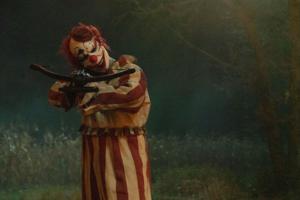
'Clown in a Cornfield' review: Gory slasher tale hits a dead end
As ready-made horror titles go, "Clown in a Cornfield" says a lot with a little. There are of course no good places to run into a clown, but a cornfield would be high on the list of undesirable locations.
There are also limitations to that title — "Snakes on a Plane" ran into a similar issue — and after the whole clown in a cornfield ...Read more
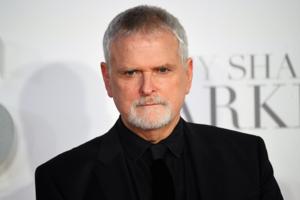
James Foley, filmmaker who directed Madonna music videos and 'Fifty Shades' sequels, dies at 71
LOS ANGELES — Filmmaker James Foley, whose directing career spanned music videos, television and film, with stars including Madonna, Al Pacino and Bruce Dern, has died.
Florent Lamy, a representative for Foley, confirmed the Brooklyn-born director's death to The Times on Thursday. Lamy did not provide a cause of death, but according to media ...Read more











